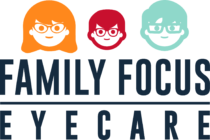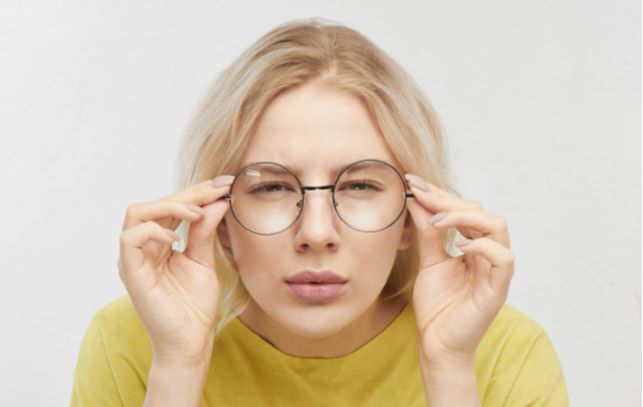No matter what stage of life you’re in—maintaining a consistent schedule with your optometrist is essential. Whether you’re going in for an eye exam to update your prescription or getting treatment for any eye conditions.
Myopia is one of these eye conditions.
But what is myopia? Let’s explore what myopia is, some symptoms, and 6 tips to prevent myopia from worsening.
What Is Myopia?
Almost 30% of Americans deal with some degree of myopia, otherwise known as nearsightedness. Myopia is a common condition and can be diagnosed with an eye exam with your optometrist.
Some symptoms of myopia include:
- Headaches
- Squinting
- Eyestrain
- Eye fatigue
With mild myopia, you may not notice any symptoms, and only a visit to your optometrist can uncover any issues. These symptoms of myopia usually go away once you receive the proper eye care in the form of prescription glasses or contact lenses.
It’s essential to treat myopia as soon as it appears, especially with children. If untreated, myopia continues to progress. Myopia is managed through glasses and contact lenses for both children and adults.
While myopia causes blurry and fuzzy vision, there can be other serious conditions that do the same, which include:
- Detached retina
- Cataracts
- Glaucoma
It’s essential to consult your optometrist to determine your condition.
What Causes Myopia?
Myopia is an eye condition caused by a refractive error, which occurs when your eye doesn’t focus light correctly, making faraway objects appear blurry or fuzzy.
Myopia appears when your eyeball is too long, or the cornea is too curved. Because of this, the light that enters your eye won’t focus correctly. This slightly abnormal shape of your eyeball can cause myopia.
Some risk factors for myopia include:
- Age
- Diabetes
- Frequent visual stress
- Family history
- Less time spent outdoors
- More time spent using screens
These factors can contribute to myopia, and it’s essential to monitor any changes in your vision.
Now that you know what myopia is and some risk factors, let’s look at 6 tips to prevent myopia from worsening.
6 Tips to Prevent Myopia From Getting Worse
There’s no cure for myopia, but you can work to slow the condition’s progression.
Invest in Corrective Eyeglasses and Contact Lenses
Prescription eyeglasses and contact lenses are a great option to offset the curve of your cornea of the length of your eyeball that brings on myopia.
Your optometrist will determine your prescription strength and undergo a comprehensive eye exam.

Limit Screen Time
Limiting your screen time, whether that means working all day on your computer or playing video games, can help give your eyes a break and limit stress.
Take regular breaks and allow yourself time to step away and relax your eyes. The 20-20-20 rule is great for this and allows you a break from staring at the screen too long.
Spend More Time Outside
Sometimes you can’t help but sit at your computer or in front of the television all day, resulting in a stressful time for your eyes.
Myopia is worsened when your eyes are in a constant state of focus—allowing them to breathe a bit within an unfocused environment like the great outdoors is a great idea.
Use Protective Eyewear
Use protective eyewear such as sunglasses with ultraviolet radiation protection when you decide to venture outdoors. The sun is great, but your eyes need protection as well.
Even when working on your computer, using blue light-protected lenses can help and prevent stress. EyeZen lenses are an excellent option for your children when they’re sitting in front of digital devices as well as they reduce the overall strain on handheld devices and computers.
Monitor Your Diet
You may not think your diet contributes much to your overall eye health, but a balanced diet can make a difference.
Get your vitamins and focus on food sources such as:
- Carrots
- Red peppers
- Broccoli
- Spinach
- Strawberries
Your dietary choices can help with your eye health and overall health.
Stay Consistent With Eye Exams
Your optometrist is the best guide for all things involving your vision. Going to them with any questions or concerns is crucial in understanding your eyes. Your optometrist can monitor any changes or anomalies that appear over every exam and act accordingly.
Your optometrist can determine the best treatment for your needs with consistent eye exams.
Moving Forward With Myopia
Even though complete prevention isn’t possible, living with myopia is very common. Your options for corrective eyeglasses and contact lenses are readily available. Managing your myopia is all about taking care of your eyes.
Book an appointment with your optometrist today to learn more about myopia and if any possible treatments are for you.



